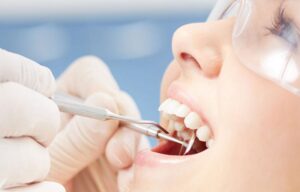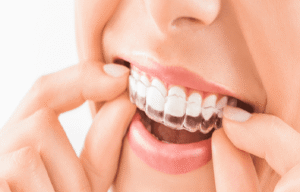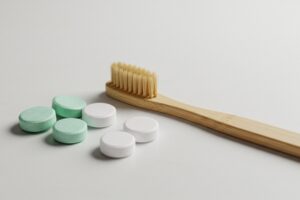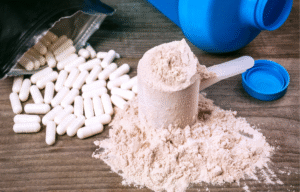The Importance of Dental Care for Your Pets
4 min read
Oral healthcare is a crucial aspect of maintaining the overall well-being of your pet. Frequent check-ups at the veterinarian and at-home maintenance can help ensure that your furry friend’s teeth and gums are in healthy condition. Failing to maintain proper oral health can lead to other serious health issues.
Thankfully, it’s easier than you might think to make sure your pets are getting quality dental care. Let’s cover some tips about dental care for your pets, as well as common oral health issues. Read on to learn more about dental care for pets, common dental issues, signs and symptoms, and treatment tips.
What Is Dental Care for Pets?
Dental care encompasses the different practices that maintain your pet’s oral health, including
- Regular teeth cleaning
- X-rays
- Scaling
- Repair
- Extraction, if necessary
Dental care is crucial to maintaining overall physical health because it doesn’t just affect your four-legged friend’s mouth. Dental disease is often linked to other health conditions such as heart and kidney issues. To discover a dentist office nearby, go to this page.
Common Oral Health Issues in Pets
Knowing the common causes of oral health issues can help you establish proper preventative care for your pet. While we can’t cover them all, let’s go over some of the most common oral health problems pets can face.
Plaque is bacteria that forms on teeth as a result of poor oral hygiene. If left untreated, it leads to tartar, which cannot be removed without professional help. Plaque and tartar are often the cause of several more serious dental issues.
Periodontal disease – also known as gum disease – is one of the most common oral health issues in dogs and cats. Plaque and tartar accumulation eventually damages the jawbone and its surrounding tissue. You must catch and treat periodontal disease, as it can lead to more serious health issues.
Oral cancer is a serious and aggressive disease that must be evaluated by a professional. Some of the most common signs in animals include
- Excessive drooling
- Lumps in the mouth
- Difficulty eating
- Bleeding in the mouth
Gingivostomatitis is a condition that causes swelling of mouth tissue. It can cause inflammation and infection in the gums.
How Often Should My Pet Receive Oral Health Checks?
Experts recommend that you take your pet to a dental check-up at least once a year. Frequent checkups ensure that their teeth and gums are healthy and that there are no signs of oral diseases. Even if problems are starting to form, they won’t usually become too advanced within a year, so you’ll always be able to stay on top of your pet’s oral health.
In addition to check-ups, you should consult a veterinary professional if your pet is exhibiting any of the following symptoms.
- Bad breath
- Mouth bleeding
- Swelling in the mouth
- Inflamed gums
- Abnormal drooling
- Discolored teeth
- Reluctance to eat
Assume that if your pet is experiencing any of those signs, they’re uncomfortable! You wouldn’t want to wait a year to see your dentist if your mouth was in pain, and you shouldn’t make your pet wait that long, either.
What Can I Do At Home To Help Maintain My Pet’s Oral Health?
Dental care shouldn’t just be left to the vet. Home maintenance is a crucial part of maintaining your pet’s oral health. The following measures can help ensure that you are practicing a healthy oral care routine.
- Brush your pet’s teeth. Brushing at home can eliminate plaque build-up and bad breath. Be sure that you use toothpaste formulated for pets, as regular toothpaste can contain harmful ingredients.
- Feed your pet a “dental diet.” Specially-formulated foods can “brush” your pet’s teeth as they eat and help prevent tartar build-up.
- CBD oil for dogs can act as an anti-inflammatory agent for your pup’s swollen, painful gums. It can also potentially prevent gingivitis and gum disease. Get approval from your veterinarian before trying any at-home remedies.
- Invest in plague-control products. There are several wipes, sprays, brushes, and chews available to prevent plague in cats and dogs.
In addition to maintaining oral health, you should also actively monitor your furry friend’s overall physical health. Good health practices to perform with your pet include walking, playing puzzle games, and doing sciatica pain relief exercises. You should frequently be enriching your pet’s physical and mental health to ensure that your companion is happy and healthy.
Why Dental Care for Your Pets Is Important
Dental health is crucial as it is associated with overall physical health – dental diseases can lead to several other serious health issues.
Your pet should receive dental checkups from a professional veterinarian at least once a year, and you should take the time at home to make oral health a priority. Dental care is just one piece of the puzzle for overall health, but it shouldn’t be ignored.






